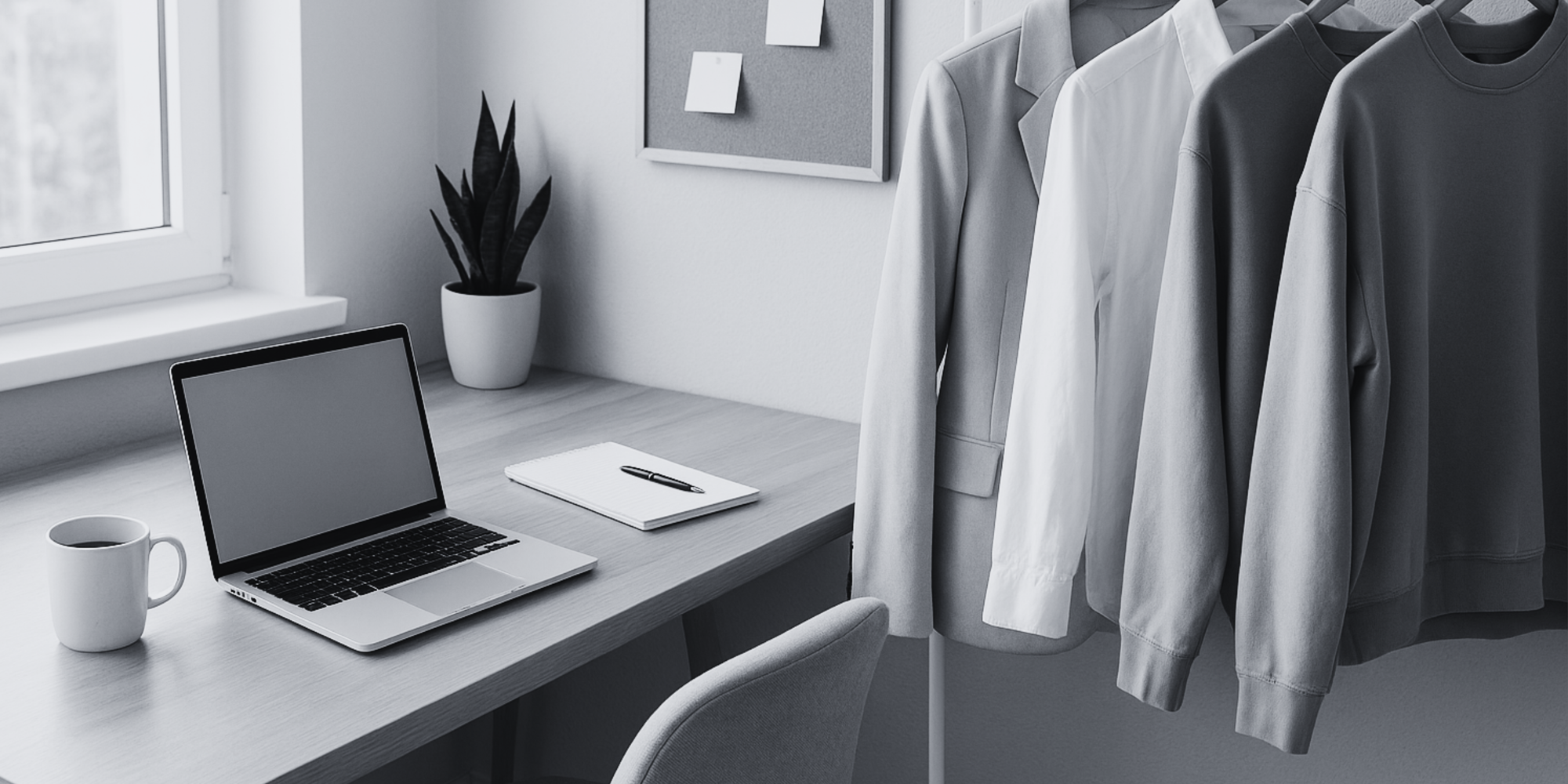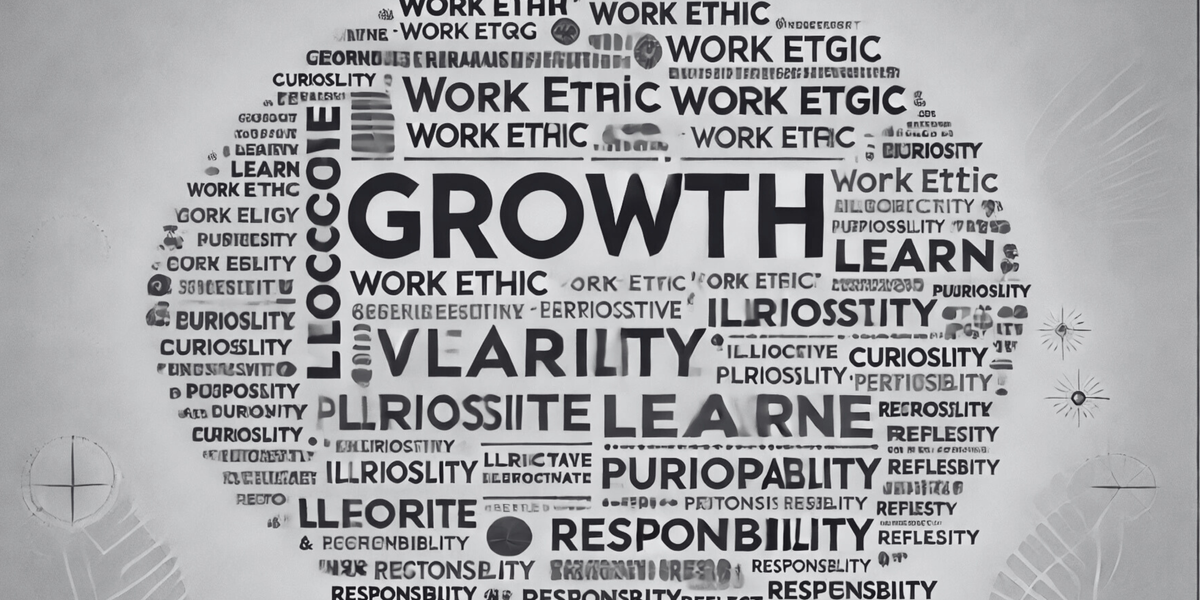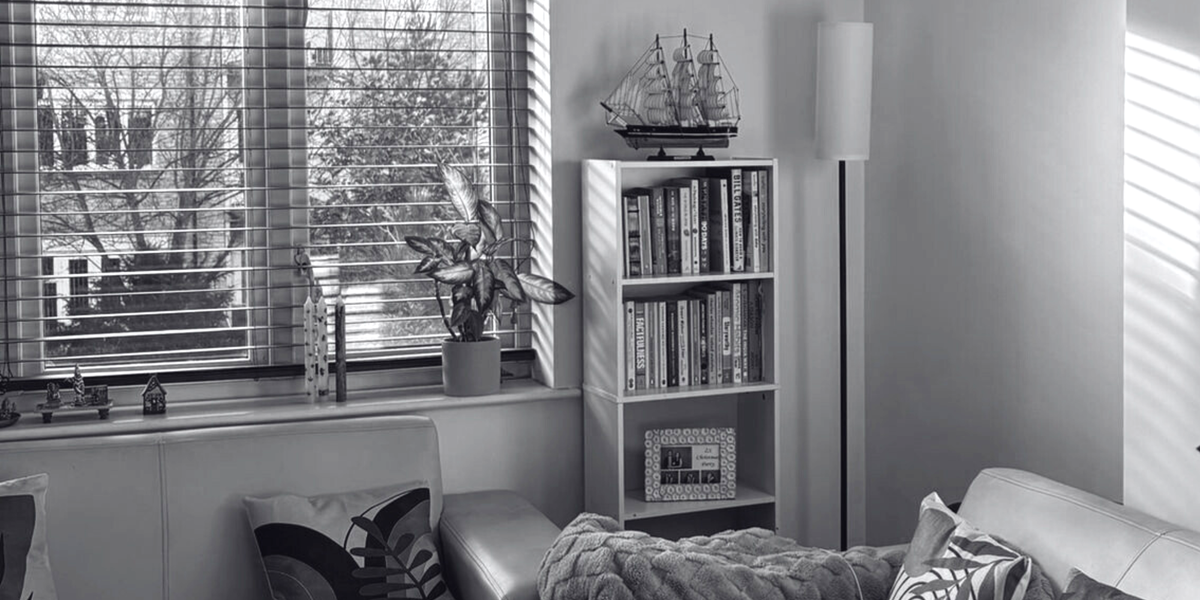Why what you wear still matters in a WFH World

I’ve always loved dressing up. My friends and family joke that I’m ready all the time. Even on a Sunday with no plans, you’ll still find me in something presentable, hair done, face fresh (something that also comes from my mother). It’s not about impressing anyone, I simply feel my best when I’ve gotten up and gotten ready for the day.
Back when I was working in India (pre-COVID times), going into the office every day was the norm. I genuinely enjoyed putting an outfit together, adding a touch of accessories, and stepping out feeling sharp. Sure, by the fourth day in a row it could feel a little tiring, but it gave me a sense of purpose and rhythm.
Then COVID hit, and suddenly working from home felt like a luxury - no commute, no heels, no need to rush through the morning routine. But I missed the vibe of an office where everyone showed up, dressed up, and carried that shared energy.
When I moved to the UK, I was so excited about working in London. Part of the excitement came from growing up watching movies where women in London wore big heels, walked confidently as if they had somewhere important to be, and had their hair perfectly done whether in a neat high bun or sleek and straight. I dreamed of being one of those women, walking into beautiful offices surrounded by people who dressed as sharp as they worked. But as fate would have it, post-COVID work culture shifted. Now, most of us work from home more days than not.
Of course, working from home has its moments. Sometimes you wake up just minutes before your morning call, roll over to your laptop, and log in wearing the same T-shirt from bedtime, hair doing its own thing. Maybe you put on a Teams background to hide the unmade bed or that pile of laundry. It’s only a matter of time before some lazy genius introduces a “Choose Work Outfit” button in Teams instantly swapping your crumpled tshirt for a blazer, smoothing your hair, and have the perfect make up. Tempting? Absolutely. But no matter how convincing those pixels are, there’s something irreplaceable about putting on real nice clothes, feeling that shift in your mindset, and working in a space that’s actually clear around you.
For me, dressing up doesn’t mean full-on corporate attire every morning. It can be as simple as wearing something other than my oversized T-shirt, running a comb through my hair, and putting on a little eyeliner and lipstick even if it’s just to spend the day at home. At least it makes me feel like I’m set to tackle the day. There’s a natural shift in my energy.
And that’s the thing dressing up is personal. It’s an identity. Your version of “ready” doesn’t have to look like mine. For you, it might be a tshirt and a pair of jeans, for someone else, it might be joggers and a hoodie. You probably know that when you call Andy from the engineering team, he’ll have a shirt on no matter what, if you call Linda from BI, she’ll have her hair in a bun with an oversized tee; if you call Meg from Dev, she’ll be wearing that sleak necklace.
You get the core idea though? It’s simple, it’s whatever makes you feel good about yourself, ready to seize the day, and make the most of it.
Sure, maybe you’re someone who feels like an absolute boss in your nightclothes too. But would you feel even better if you dressed up - whatever that means to you? Psychology says… probably yes.
Psychologists Hajo Adam and Adam Galinsky ran a fascinating experiment to prove that what you wear can actually change how your brain works, something they call "enclothed cognition".
They started with the classic white lab coat, the kind doctors and scientists wear, which we all associate with precision, responsibility, and important work. They split people into two groups: one wore their regular clothes, and the other wore a lab coat (but were told it was just for protection during building work).
Then everyone had to do a task that required focusing hard and avoiding silly mistakes. As you can probably guess, the people wearing the lab coat made half as many mistakes as the ones in their own clothes. But why? Because the moment you put on something that’s linked to a serious, high-focus job, like a doctor’s coat - your brain gets the message: “This is important. Pay attention.”
The same happens when you 'dress up' to work from home. You set the intention for the day. You make the effort to get out of your comfy pyjamas and your brain instantly goes 'This part of the day matters'. It’s why I still make the effort even on days I don’t leave my flat. The ripple effect is real, I show up better to meetings, I’m less tempted to lounge on the couch, and I end the day feeling like I did something rather than just existed.
Closing
I started writing this blog after stumbling upon Deliciously Ella’s post from 2020 about ‘Working from home’ attire – what is acceptable? and how dressing up can change how others see you. She shared a story about a junior colleague wearing a blazer who suddenly seemed more important or boss-like just because of how they dressed. It really stuck with me because it shows how powerful our clothes are not just for ourselves, but for how others perceive us.
So, I would like to ask you - what does dressing up mean for you? and how does it shape the way you show up in your world, even when no one’s watching?
References
https://www.sciencedirect.com/science/article/abs/pii/S0022103112000200

Suggested Reads








